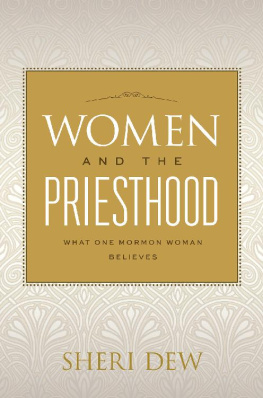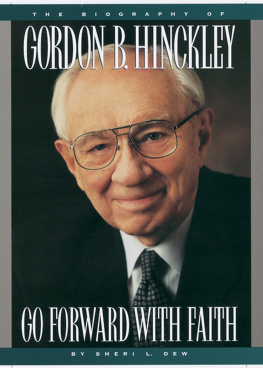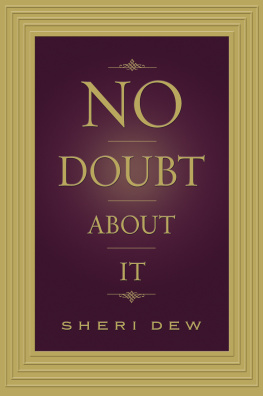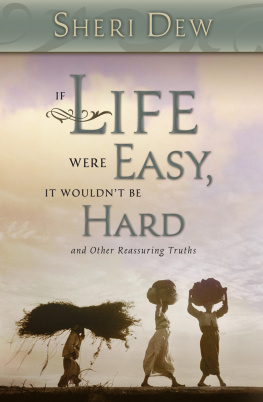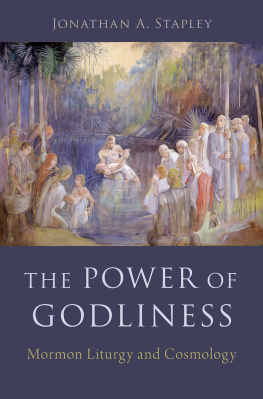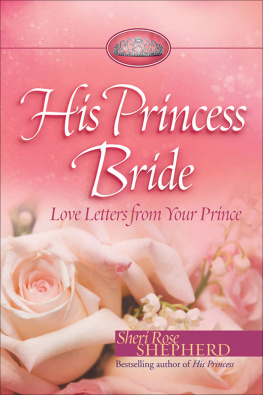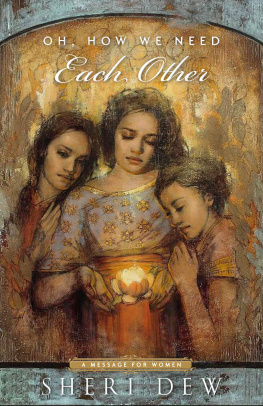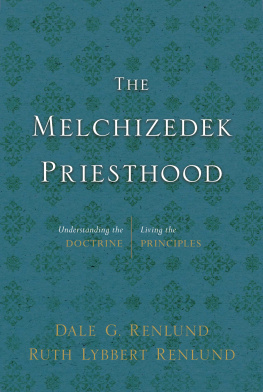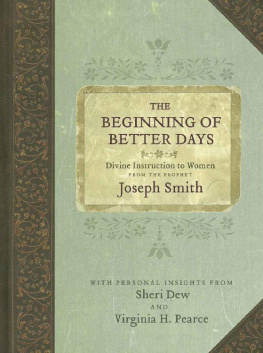Introduction
Last summer I went with my mother, sisters, a sister-in-law, and several young-adult-age nieces to see a stage production of Seven Brides for Seven Brothers at a popular outdoor theater high in Utahs Wasatch Mountains. It was a girls night out, and we loved being together, but the showdespite being nicely produced and featuring some fine talentraised more than a few of my nieces eyebrows, not to mention my own.
Id forgotten how sexist that play was. In 1954, when the movie version of Seven Brides for Seven Brothers was initially released (and snagged a Best Picture nomination), the me-Tarzan-you-Jane way women were treated was probably considered normal. But in the summer of 2012, the dialogue and even the plot seemed like a throwback to the Dark Ages. My nieces were uniformly bugged. Even I was surprised at the reminder of how provincial society was in its treatment and depiction of women six decades ago. I often have the same reaction when I catch an I Love Lucy or Mary Tyler Moore rerun. Though filled with unforgettable, classic humor, those golden-oldie sitcoms frequently portrayed women in stereotypical ways that elicit gasps today.
From all appearances, superficial though appearances almost always are, weve come a long way, baby, as the old marketing slogan from the sixties goes. Some of the changes during the last half-century regarding women have been important onesmore women receiving more education, women having more protection under the law (and in some countries and cultures, for the first time), more women being compensated fairly for their work, more women benefitting from the removal of various kinds of glass ceilings, and so on.
I am not a feminist. But I am pro-progression, meaning that I am in favor of opportunities and experiences that allow for the personal development and growth of men and women alikeespecially when those experiences are sanctioned by the Lord.
By the same token, some kinds of progress with respect to women havent been progress at all. Societys diminished view of motherhood and marriage as God defined them is troubling, as are the dramatic escalation of the sexualization of women in all forms of media and the ever-increasing number of out-of-wedlock births. The Desperate Housewives, Sex and the City approach to life that glamorizes adultery and paints immorality as normal and even desirable is alarming. And any trend that attempts to blur important, God-given distinctions between men and women threatens the ability of some to recognize the truth of the plan of happiness. In the clamor for women to be treated equally with men, many appear to have missed, misunderstood, or discarded as insignificant the innate, transcendent gifts women have been given and the unique position women have occupied in the eyes of our Creator all along.
Our Experiences and Beliefs Shape Us
As is the case with each of us, my experiences and beliefs have shaped my view of the world. I am the daughter of a Kansas grain farmer who expected me to set irrigation tubes, camp out behind the wheel of a John Deere tractor on hot summer days, and maneuver large grain trucks through the fields during harvest just like my brothers. Farm life combined with a love of sports turned me into something of a tomboy. Though I grew up in a pre-Title IX era, girls sports in the sunflower state were already big, and I never felt that my games were less important than my brothers. At the same time, I studied the piano seriously enough to entertain the notion of becoming a concert pianist. Though I ultimately had to face the fact that I wasnt talented enough for the big leagues (on either the court or the concert stage), I did spend a stint as a pianist in a professional USO group that toured Asia, Europe, and Alaskaincluding a stormy flight through wind blowing sideways out to Shemya, the next-to-last island in the Aleutian chain. Through it all, my youth and young-adult years taught me that though there were certainly important distinctions between girls and boys, there was nothing constraining about being a girl. In fact, I deduced early on that there were significant advantages to being a girl.
From my earliest days, life has revolved around my membership in The Church of Jesus Christ of Latter-day Saints. Everything I believe about the purpose of life, the potential of eternal life, and the Atonement of Jesus Christ has been heavily influenced by prophets, seers, and revelators, by what I have learned from immersing myself in the word of Godparticularly the Book of Mormonand by decades of regular temple worship. All I understand regarding what heaven has revealed about where women fit into the divine plan and the Lords Church has been framed by my experience, observations, and learnings as a Latter-day Saint woman.
I will admit that I am not terribly interested in discussions about such topics as women who work versus those who dont, or the can-women-have-it-all debate. I am far more interested in what we know about how our Father and His Son, Jesus Christ, view and treat women. My views of this have been shaped by a body of rich doctrine as well as nearly six decades of lived experiences in which Ive seen firsthand the results of the application of those truths.
Since my young-adult days, or for nearly forty years now, Ive studied and prayed and thought about the place of women in the kingdom of God. In addition, it has been my privilege to meet literally millions of Latter-day Saint women around the world, and I have spent years observing, learning from, praying for, and thinking about them. Nonetheless, the initial stirrings for the combination of material in this book didnt begin until a couple of years ago. Increased attention to the Churchs doctrine, practices, and the accomplishments of its members has also shined a light on LDS women. Depictions of who we are by the media have ranged from even-handed and respectful to wildly inaccurate and downright bizarre.
Causes of Confusion
There are reasons for this. Despite frequent doctrinal declarations by Church leaders about the worth, influence, contribution, and value of women, flawed perceptions about LDS women are as old as the Church itself. Two of the causes of confusion deserve mention: first, a lingering cloud of misunderstanding over the temporary practice of polygamy, which ceased more than 120 years ago; and second, the reality that LDS women are not eligible for priesthood ordination.



